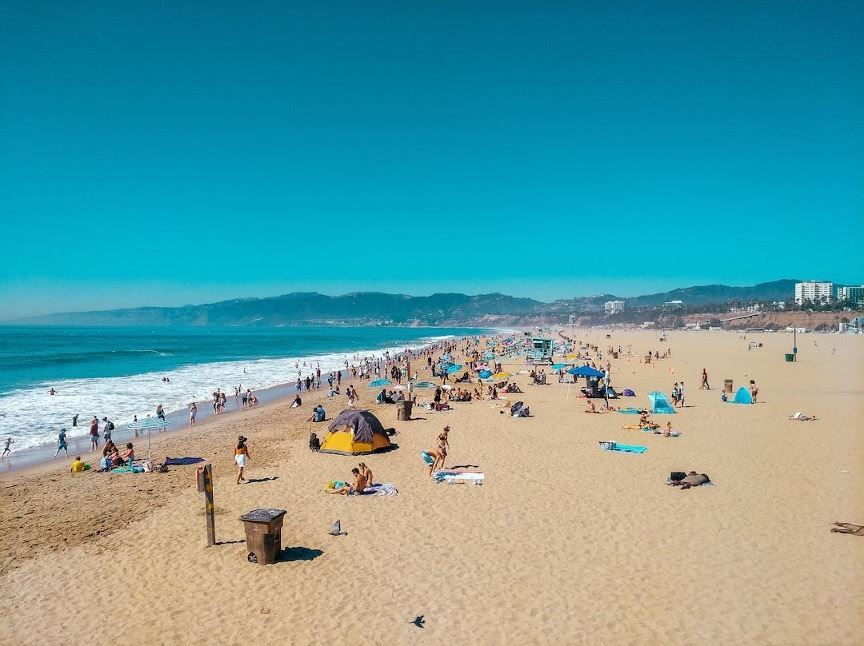Spring Break and Safety
Students look forward to spring break with excitement, knowing they get two weeks of fun, parties, and wild times. Parents look forward to spring break with dread, hoping everything works out and they don’t get a 3:00 a.m. phone call from the police.
Spring break can be a great time, but it is filled with opportunities for personal injury accidents. Just putting so many young people in one place means the likelihood of accidents goes up, then add in alcohol and late nights, and you have a recipe for trouble.
However, with a few basic precautions, both students and parents can reduce their risks and get through spring break with fewer sleepless nights.
Common Spring Break Accidents
Depending on where you go to spend your spring break, you could find yourself at risk for any of these possible accidents:
- Slip and fall accidents
- Boating accidents and other aquatic mishaps
- Vehicle accidents
- Skiing, snowboarding, and snowmobiling accidents
- Miscellaneous accidents, such as bungee jumping, parasailing, and pedestrian accidents
It’s easy to forget during your vacation that other people are out there having fun too. Even if you’re being careful, driving safely, and not getting intoxicated, that doesn’t mean that others aren’t being careless. Here are some general and regional tips to avoid personal injury accidents ruining your spring break fun.
General Safety Tips
At the risk of being a buzzkill, these are things you and your friends need to think about before you travel. Don’t wait till the last minute to plan your trip, including what you’ll do if something bad happens.
Car Travel
If you’re going to drive to get where you’re going, know how long it will take, the route you’ll be taking, and any potential delays or alternate routes you may need. If the drive takes more than a couple of hours, plan to swap drivers so nobody falls asleep at the wheel. And, of course, never drink and drive.
Other considerations:
- Plan for the weather. If you’re going north, have chains or snow tires. If your vehicle is 4-wheel drive, know how to put the car into 4WD and how that changes the feel of the car when you’re driving it. Check the forecast, and plan for snowy, icy, or rainy conditions.
- If you learn of road closures or sudden storms ahead, consider pulling over and waiting it out. If you’re unfamiliar with driving in snow, or if the roads are flooded, you should wait till they’re clear before you continue your trip.
- Be sure your car is in good condition for the trip. Make sure your oil and other essential fluids are topped up before you leave. Have the tire pressure checked.
- Obey the rules of the road. If you’re going to be crossing state lines, that includes checking the drug and alcohol laws. Marijuana is not legal in all 50 states yet, and it is still a federal crime to transport. Getting a traffic ticket is never fun, but getting one in a different state is a real headache.
Travel by Air
The best way to avoid personal injury on an airplane is to sit down, buckle up, and mind your manners until you land at your destination. Avoid the temptation to argue with other passengers, no matter what they do or say. Once you land, gather your luggage and exit. You can trust the aircrew to take care of the rest. Other suggestions:
- Give yourself plenty of time to change planes if you have a layover. A good time for a slip and fall injury is while running through a crowded airport with your hands full of luggage trying to reach a distant gate. Try to book your flights far enough apart that you don’t have to sprint to your connection.
- Pack light. If you do have to change planes, keep your carry-on weight to a minimum. Airlines are cracking down on the number of carry-ons you can have, but it is safe to have a small bag. If you’re concerned about losing your luggage, have it checked at the gate.
- Do not drink at the airport. You may want to start your party early, but getting drunk before you fly is a bad idea. You may say or do things you’ll regret later, and you increase the chances of falling when entering or exiting the airplane.
Alcohol Safety (Narcotics Too)
The main reason students go on spring break vacations is to party. Drinking and marijuana use go hand-in-hand with accidents. Whether you are imbibing yourself, you need to remember that on spring break, you’re surrounded by people who are indulging and overindulging and behave defensively.
Drink in moderation. This doesn’t mean you can’t drink at all, but know your limits. The average person should have no more than one drink (one beer, a glass of wine, or one shot of liquor) every hour, and not more than 2-4 drinks per night. While you’re drinking, eat some food to cushion your stomach and slow the absorption of alcohol, and drink water to prevent hangovers the next day.
Avoid binge drinking, which is usually defined as “drinking till you pass out,” or four or more drinks in two hours or less. Binge drinking leads to vomiting, loss of consciousness, blackouts, and alcohol poisoning. It can end in death.
Driving
Don’t drink and drive. You know that already, but on spring break, police have less than zero tolerance for such shenanigans. The odds of getting into an accident increase exponentially when both drivers have been drinking, so give yourself an edge by having a designated driver. Many spring break towns offer free sodas or coffee for the designated drivers.
Other essential tips for spring break drivers:
- Driving includes things like boats and Jet Skis. You should not be drinking and driving anything that moves faster than you can walk.
- If you have been drinking and need a ride, call Uber or Lyft. During spring breaks, many towns offer free rideshare services from popular bars so you don’t have to drive back to your hotel drunk.
- Even if you have not been drinking, you’ll still be treated as an adult if you’re over 18 and get involved in an accident. Obey all the rules of the road and be alert for people who have been overindulging as they walk or drive home.
Marijuana and Other Drugs
Different states have different laws about the possession, use, and transportation of marijuana, and they’re all over the map. It may be perfectly legal in your state and be illegal where you’re headed for spring break. Moreover, just because you have a medical marijuana card where you live does not mean that you’re covered where you’re vacationing.
Another thing to consider is the effect on your insurance. If you are involved in any kind of motor vehicle accident, being under the influence of any illegal narcotic may invalidate your insurance, leaving you responsible for paying all your bills, and possibly those of the other driver as well.
As with alcohol, driving while impaired is not only a bad idea for you, it prevents you from realizing that other drivers are also impaired and increases the chance of getting into an accident. It’s a bad idea overall. Wait till you get back to your hotel.
Safety Tips – North
If your spring break takes you up north, you may be skiing, snowboarding, snowmobiling or just sitting in a lodge drinking hot cocoa. The drive up will be hazardous enough, with the snowy roads and ice falling from the trees. Once you’ve arrived, you should be careful that your fun vacation doesn’t end in the emergency room.
- Know your limits. If you haven’t been skiing or snowboarding in a while, don’t head for a black diamond slope right away. Start slow and work up to your previous level.
- Stay on the marked trails or slopes. The ski resort’s insurance will not cover you if you ski outside the boundaries, and some places may not look for you either.
- Dress for the weather. Mild hypothermia can make you clumsy or awkward, and you might not be able to slow down in time to avoid a tree.
- If you’re unfamiliar with a piece of equipment, such as a snowmobile, get instructions before you court spring break injuries and ride off into the wilderness.
- As always, don’t drink while skiing, snowboarding, or snowmobiling.
Safety Tips – South
If you head for the sunny beaches of Florida or Texas, you probably won’t have to worry about ice and snow, but you should take some sunscreen and a hat, and remember to pack your common sense.
- Wear surf shoes or flip-flops on the beach. There isn’t as much trash on the beach as in times past, but spring break brings out glass and metal on the sand.
- Police and lifeguards will confiscate any glass containers, which are prohibited on most beaches. Save yourself time and don’t bring them. If you do, don’t argue when the police take them.
- If you’re not a good swimmer, or can’t swim, don’t go in past your knees. Look for signs posted on the lifeguard stands about rip currents.
- On unguarded beaches, pay close attention to your fellow spring breakers. Never go into the water alone. Try to have someone on the beach watching you.
- If a storm comes in, leave the water and the beach immediately, especially if a lifeguard or police officer waves you in. Spring beach storms have a high risk of lightning.
- If you’re out on a Jet Ski or other personal watercraft, obey all posted laws about minimum wake and no-wake zones. A no-wake zone means you may not travel any faster than necessary to maintain headway and usually applies just outside the designated swim zone.
- And of course, don’t drink and swim.
Safety Tips – Overseas
If you’re going outside the U.S., even “just” to Mexico, all these rules apply, plus a few others. When you leave the U.S., you are playing by the laws of whatever nation you are in, and being an American may not help you much. You should keep the same things in mind about drinking, driving, and excessive partying as you do in the states, plus a few other considerations:
- Never leave your passport with anyone. This is the number one mistake travelers abroad tend to make, and it is a bad one. Get a passport wallet and always keep it inside your shirt.
- Never travel alone. The days when a student could travel the rails across Europe are long gone. You should have at least one person with you, and better still a group of friends or a school tour group.
- Never carry money. Showing off a lot of money, expensive electronics, flashy jewelry, or other expensive items will make you a quick target for pickpockets or thieves. Use your credit card.
- Drink carefully. The fastest way to become a victim of any crime or an accident that could lead to a crime is to be intoxicated.
- Drive even more carefully. Driving in other countries “even just Mexico” can be a hair-raising experience. The laws are completely different and, in some places, even the sides of the road change. Unless you are familiar with the country, you are better off taking a taxi.
When Something Happens Anyway
Being careful doesn’t mean spring break can’t be fun. It only means you need to plan ahead and be aware of yourself and your surroundings. Having a good time should not mean drinking yourself unconscious or driving at incredibly high speeds and hoping nobody dies.
If you do find yourself in an accident, you need to sit down and say nothing. Whether you’ve been drinking or not, getting in any kind of spring break accident never ends well when people begin yelling at each other in the street.
If an accident happens, seek medical attention, and contact an attorney right away. Part of your spring break plans should include having an attorney’s name and number in your wallet just in case. Whether it is someone you know already or a name you saw on the Internet, keep the number handy. If you’re careful, you shouldn’t need it.









